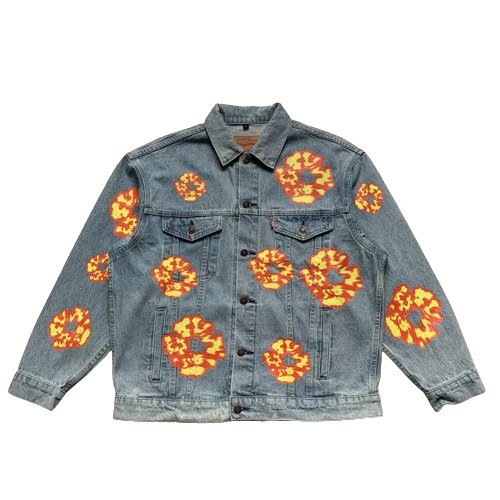Common Skin Conditions: A Guide to Diagnosis and Treatment
Our skin is the body’s largest organ and serves as a crucial barrier against external elements. However, various skin conditions can arise, affecting not only our appearance but also our overall health. This blog will explore some of the most common skin conditions, their causes, symptoms, and treatment options. Dr. Stephen Bou-Abbse, a renowned dermatologist, emphasises the importance of understanding these conditions for effective diagnosis and management.
1. Acne
Causes: Acne is one of the most prevalent skin conditions among teenagers. Excess oil production, clogged pores, bacteria, and inflammation cause it. Hormonal changes during puberty can trigger an increase in oil production, leading to breakouts.
Symptoms: Common symptoms include pimples, blackheads, whiteheads, and cysts, primarily on the face, back, and shoulders.
Treatment: Treatment options vary based on severity. Over-the-counter products containing salicylic acid or benzoyl peroxide can help mild cases. A dermatologist like Dr. Stephen Bou-Abbse may prescribe topical retinoids or oral medications such as antibiotics or hormonal treatments for moderate to severe acne.
2. Eczema
Causes: Eczema, or atopic dermatitis, is a chronic condition characterized by dry, itchy skin. Various factors, including allergens, irritants, stress, and weather changes can trigger it. Genetics also play a significant role, as individuals with a family history of eczema are more prone to developing it.
Symptoms: Symptoms include red, inflamed patches of skin that may be itchy, dry, or scaly. In some cases, eczema can lead to oozing or crusting.
Treatment: Moisturizers are essential for managing eczema. Over-the-counter hydrocortisone creams can help reduce inflammation. A dermatologist may recommend prescription topical corticosteroids or systemic medications for more severe cases. Dr. Stephen Bou-Abbse often advises patients to identify and avoid triggers to minimize flare-ups.
3. Psoriasis
Causes: Psoriasis is an autoimmune condition that accelerates skin cell growth, leading to thick, scaly patches. Stress, infections, and certain medications can trigger it. Genetics also play a role, with a higher likelihood of developing psoriasis in individuals with a family history.
Symptoms: The most common symptom is the appearance of red, raised patches covered with silvery scales. These patches can be itchy and may crack, leading to discomfort.
Treatment: Treatment options include topical corticosteroids, vitamin D analogues, and retinoids. Phototherapy, which involves exposing the skin to ultraviolet light, can also be effective. In more severe cases, systemic medications such as biologics may be prescribed. Dr. Stephen Bou-Abbse advocates for a tailored treatment plan to address each patient’s specific needs.
4. Rosacea
Causes: Rosacea is a chronic inflammatory skin condition primarily affecting the face. Its exact cause is unknown, but genetics, environmental triggers (like sun exposure or hot beverages), and an overactive immune system may contribute to its development.
Symptoms include facial redness, visible blood vessels, and acne-like breakouts. Some individuals may also experience a burning sensation or stinging.
Treatment: Treatment for rosacea often involves avoiding triggers and using gentle skincare products. Topical medications like metronidazole and azelaic acid can help reduce redness and inflammation. In more severe cases, oral antibiotics or laser therapy may be recommended. Dr. Stephen Bou-Abbse emphasises the importance of consistent care in managing rosea effectively.
5. Skin Cancer
Causes: Skin cancer is one of the most severe skin conditions, primarily caused by prolonged sun exposure and tanning bed use. There are three main types: basal cell carcinoma, squamous cell carcinoma, and melanoma.
Symptoms: The symptoms vary depending on the type of skin cancer. Common signs include new growths, changes in existing moles, or sores that do not heal. Melanoma may present as an irregularly shaped mole with varying colours.
Treatment: Early detection is crucial for effective treatment. Options include surgical removal, radiation therapy, and chemotherapy. Regular skin checks with a dermatologist, like Dr. Stephen Bou-Abbse, can help identify skin cancer early, improving the chances of successful treatment.
Conclusion
Understanding common skin conditions is essential for maintaining healthy skin. While many conditions can be managed with appropriate treatment, consulting with a qualified dermatologist is crucial for accurate diagnosis and personalised care. Dr Stephen Bou-Abbse and his team are dedicated to helping patients navigate their skin health journeys, ensuring they receive the best care.
If you’re experiencing skin issues, don’t hesitate to seek professional advice. Your skin health matters; with the right knowledge and treatment, you can achieve healthier, clearer skin. for more content read Softnewsdaily.com.






